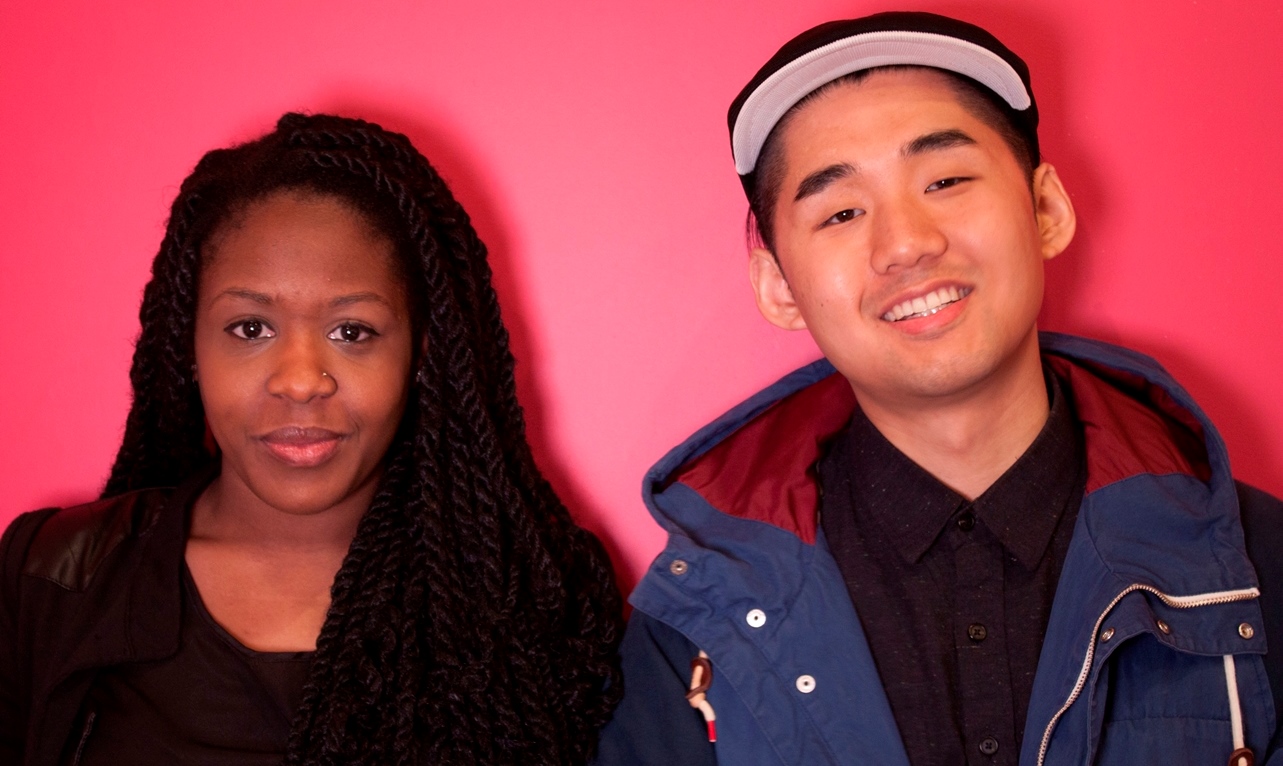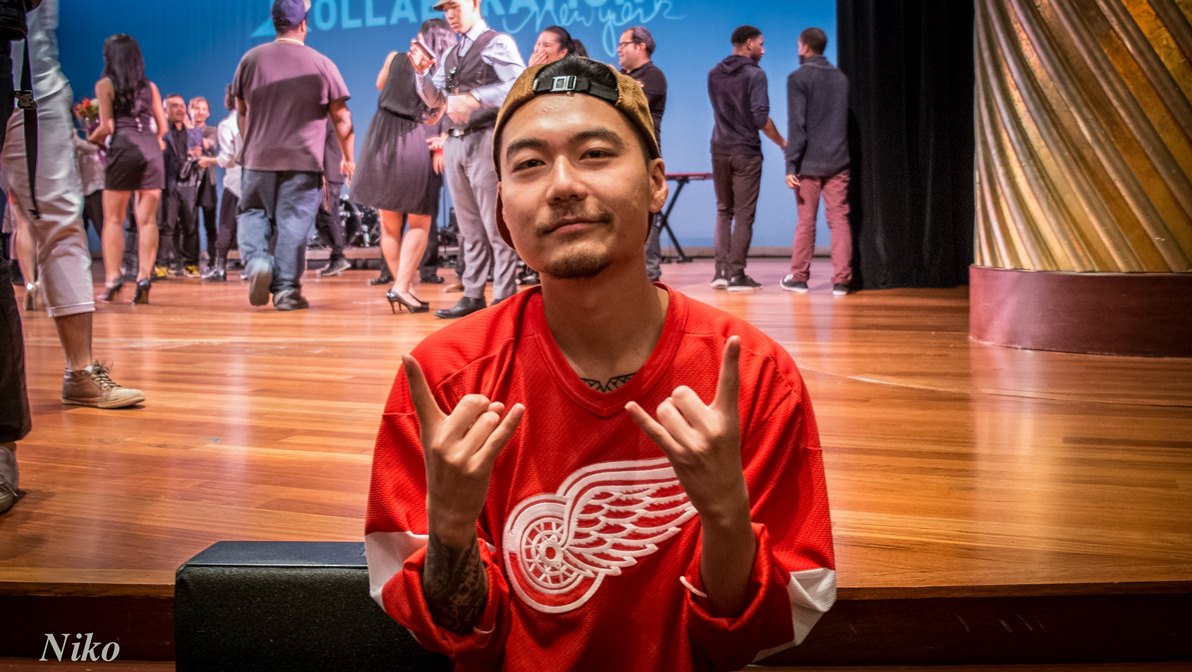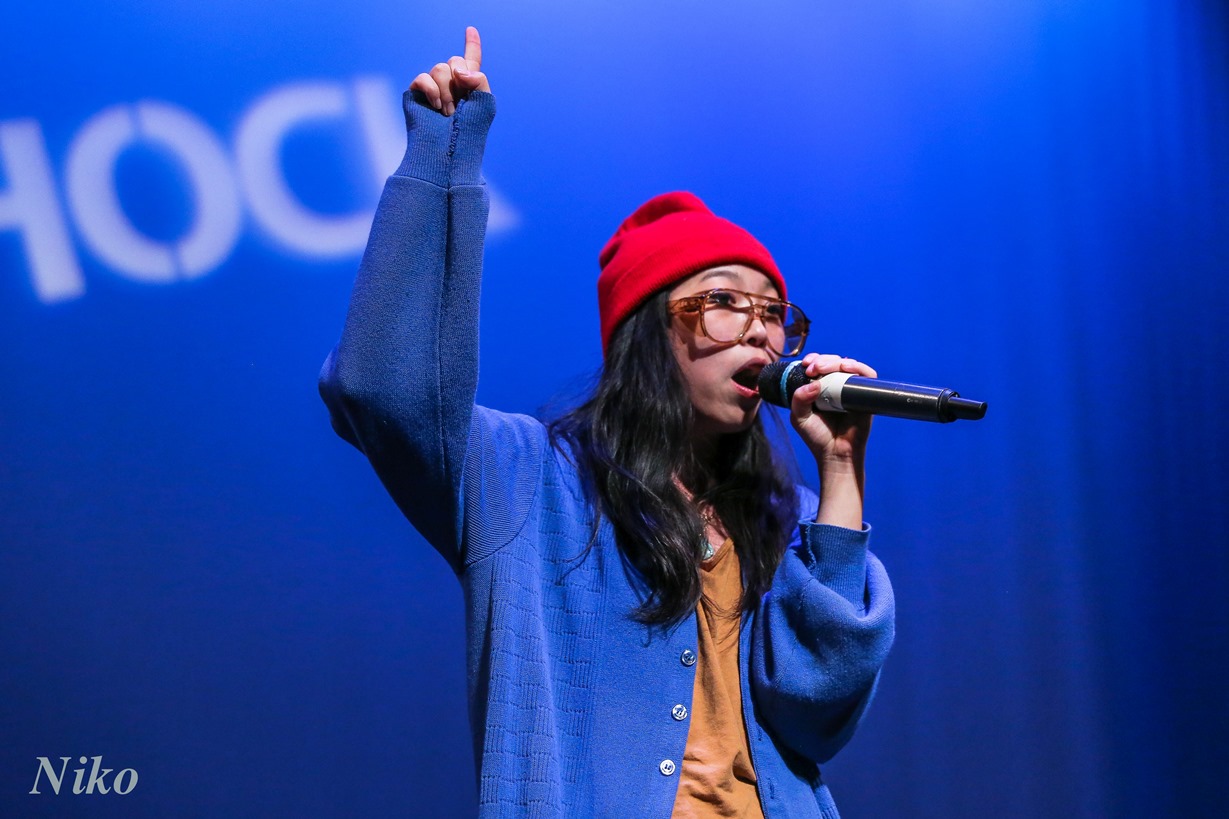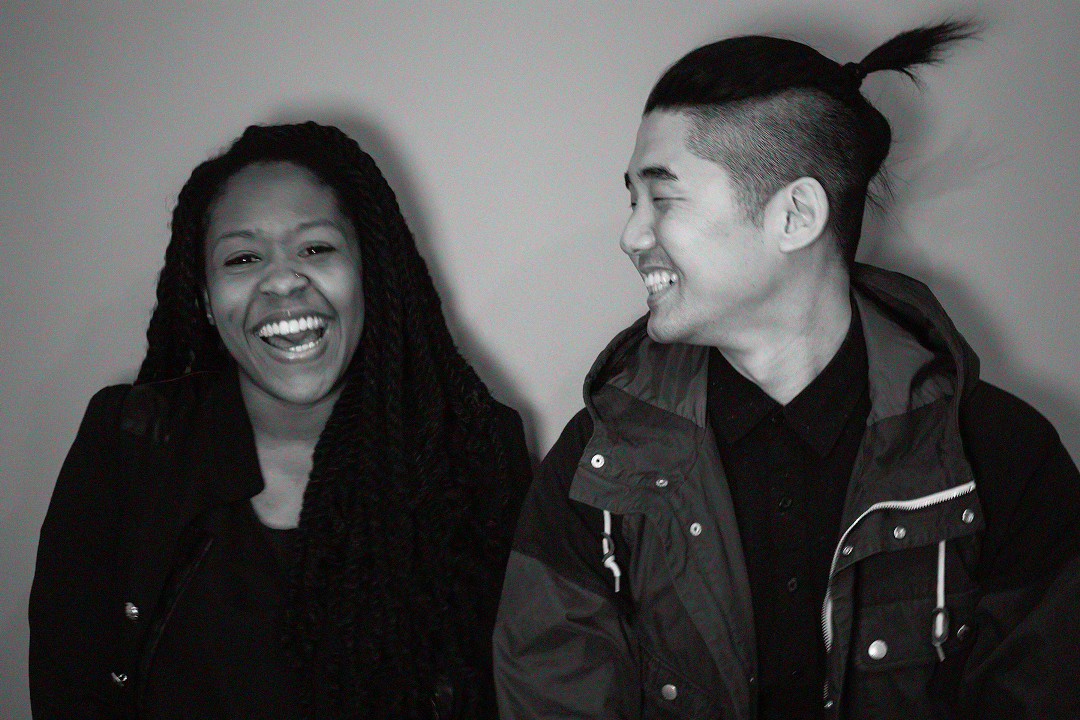Article By Kevin Young
Photo credit Niko
Music journalists Jaeki Cho, and Salima Koroma continue to enhance their upcoming documentary Bad Rap, which depicts an untold story. The duo is going to pioneer telling the story of Asian-American rappers fighting to make a name for themselves in the mainstream market. Yet in order to complete this full-length film they need money to augment the film quality and to attain a professional production crew. These two can’t do it alone. They need top-notch editors and sound specialists. To push production forward the duo successfully championed a fundraising campaign on Indiegogo, exceeding their target of $25,000. With an abundance of support they raised $33,911 (136 percent of their target).
Salima’s impressive skills in filming and editing combined with Jaeki’s knack in communications and networking make them the perfect team to get the job done. Let’s not forget their mutual love for hip-hop which brought the pair together. They understand this lucrative culture embedded in American history that started off in the Bronx. They intend to premiere the film in September but they don’t want to rush making the finishing touches. “We want to deliver a solid project,” said Jaeki.
1. How did the two of you end up working together? How did the topic of Asian-American Rappers come up?
S: I wanted to do a story about Korean pop, about the power it has in Korea and I saw that XXL (a hip-hop magazine) did an interview with G-Dragon who is a huge star in Korea. The person that did the interview was Jaeki. So I got his contact information and hit him up. He was very inviting and very warm. He asked me a lot of questions that were pertinent and I thought he was very smart. We got on the phone and the first time we talked, we talked for more than two hours about stuff. We learned that we both love hip-hop, are both journalists and both came up with producing the story about Asian American rappers. Something that’s never been done.
J: Basically what happened was that Salima presented the idea of doing a documentary about K-pop. I had to be straight up with her and said “to be honest you’re not gonna get the access that you want because of different labels and how restricted they are.” Limited access is allowed especially in the genre of K-pop. I suggested a different idea since she’s interested in Asian pop music and we both are hip-hop fans. There’s a medium in-between the subgenre within hip-hop that I’m very attuned with and know a lot of players inside that genre. I was very attuned with it after being active in that field (Jaeki is also a rapper) for a very long time. Different artists have different friends. So I just told her “Yo since I know all of these players we could have access to and I have an idea of the content, how about we come together and work on this subject instead of K-pop which is gonna be overwhelming with limited access where the content isn’t going to be as juicy.” Even though Salima wasn’t really too aware of these artists before she hopped on this project, after meeting them she became more of a fan than I am. She would say “Yo these guys are dope.” I wouldn’t freak out because they are my friends and shit but I would be like “I guess they are”.
2. After conducting all of your interviews do you think these artists would be more marketable if they go to Asia to find success then comeback to America instead of trying to directly break into the mainstream market?
S: You know what Jaeki its funny I don’t remember who said it in the film but I caught it hella candidately. It might have been Decipher or Dumbfounded who said “Yo it’s hard to go to Korea and just rap” It’s not like an easy place to break into. These people are also American. You know that’s like someone telling me why don’t you go to Africa and perform but that’s not my home I don’t know that place. For me that’s how I would see it.
J: I think in the whole concept of the Asian-Americans who are second generation with a broken native language whether it be Chinese or Korean go back to their native land to pursue some type of career in Asia still exists today. There is still that element of surprise for people in Asia to look at these Americans and say that this kid has talent. They might say, “The way this person is delivering black music is more effortless than someone who grew up in Asia.” I would say this was the case a decade ago but not today. If Decipher and Dumbfounded became rappers in Korea 10 years ago, over time they would have picked up more Korean and they would have been more marketable. They would have held some success even though it would still be a difficult journey for them because hip-hop didn’t really become an openly accepted genre there until recent years.
3. You guys said that you were working on this project for a year and a half. What were the challenges during filming?
J: Coordinating with the artists. Certain artists are more on point in terms of their scheduling and their availability and initially their excitement and their expectations for this film wasn’t as big until after they saw footage for the film and initially they weren’t as willing to partake in it. It wasn’t that they didn’t really respect our project it’s just that their expectations weren’t as high until after they saw the footage. Then they were like “Oh shit this shit is really official.” In their heads they were probably like “It’s just two kids running around with their DSLR what can they possibility make out of this shit.” But you know after Salima did her magic and I did my thing everything was bong bong and straight to the go.
S: On top of that this is something we want to stress that we did on our own. We didn’t have a big production crew. We didn’t have sound people or editors. We did this all on our own. Which is why we are doing this fundraiser campaign, because we are gonna need help to fund the post production and do a little bit more production. And I think for a documentary that’s been done by two people, I’m really proud of what we were able to do with just us. There have been a lot of difficulties technically with creating this film.
J: That’s why there were certain scenes where Salima would just have one camera. It’s because there were no sound people. The sound would just come fucked up but it wasn’t her fault. How can she possibility hold the camera, shoot, and mic these people? Some of the conversations that happened in this film were super spontaneous like there’s a scene when I’m debating with an artist about a subject. That came out without any premeditated thought and those are some of the juicier moments in the film. Salima caught that but there was no sound support so we had to go back to post production and do all this magic. Things like this were difficult. You know even though we share and have the same ideals in many ways there are still going to be points during our production process where we are gonna have a difference in opinions. It was something that we had to go though in order to create a better product.
4. On the Indiegogo page it says more funds will help alleviate travel expenses and help speed up the editing process. Which crucial aspect in particular is delaying this film from being finished?
S: Specifically I would say the fact that we want to include a lot more people to get a better story. To do that we want to talk to people who are on the east coast, west coast, midwest and the south. We want to talk to a lot of people. As well as post production it includes graphics editing which are all very expensive. In fact 25k is not that much money.
J: Honestly to do a film of this scale we need at least 50k.
S: I wanna say like a 100k.
J: 100k is for like a feature documentary. 45k is not a lot of money in terms of film making. So that’s why we are doing everything low cost. We need more content we also need a lot more people to hope on broad to tweak and perfect everything in terms of sound, motion graphics, design, packaging, promo materials all of that. If you take a film 101 class if they give you 100 bucks 50 bucks goes into marketing and 50 bucks goes into production. We didn’t even spend a single dollar in marketing yet! We didn’t hire a publicist. Everythings been done by me and Salima. It’s still a long way to go.
5. What are the messages or themes that you guys want viewers to take away after watching this film?
J: For me personally there are many aside from the fact that there are these groups of artists. How things are changing over the years with more Asian-Americans in media. How the socioeconomic status of Asian-Americans is improving. The whole concept of an Asian-American who is masculine especially Asian-American males who are deemed the least favored and masculine people in America, to partake in hip-hop which is super masculine. It’s a complete antithesis and I feel like those two ideals from two different worlds create a very interesting dynamic and this film explores that. When people watch this I hope they say that these kids exist and they say they are just like us. I hope people like myself, an Asian-American male and youth growing up in America can see this and be like I hope these guys can make it or even if these guys don’t take it to that level I hope it gives me the courage to think I can take it to the next level.
S: The images that you have of Asian-Americans that are in the media, in television or in films are stereotypes. It’s not as bad as it was 20 years ago but they still exist. You have the Asian male nerd or the female exotic and I think that’s what the larger audience sees. Amongst other things I want people to say “These kids exist and I can relate to them.”
6. Anything else regarding Bad Rap that you would like readers to know?
J: We just want to say thank you to everyone who’s been supporting us so far. Honestly 25k isn’t a small amount to raise. And I think the support we’ve been getting is amazing. Much more than our expectations. So yeah we just wanna thank everyone and please continuously support this if you’re reading this right now. I just want people to understand that hip-hop has become more international and more diverse. This film is a representation of that and on top of that this film is a generation of a new American youth. That’s what this film is representing beyond rap and hip-hop, American youth. I hope people can see that and not just consider it like a bunch of rappers saying “Yo why I can’t get some.”
S: What Jaeki just said was perfect its poetry.
A few of the artists that are included in this documentary are K-pop sensation Jay Park, the pioneer Asian-American rapper MC Jin, YouTube guru Traphik, and many more. The four headlined artists are Awkwafina, Dumbfounded, Lyricks, Rekstizzy. Be sure to check out their trailer here https://www.youtube.com/watch?v=7ROfSpDfa70 and look out for when Bad Rap is released.



